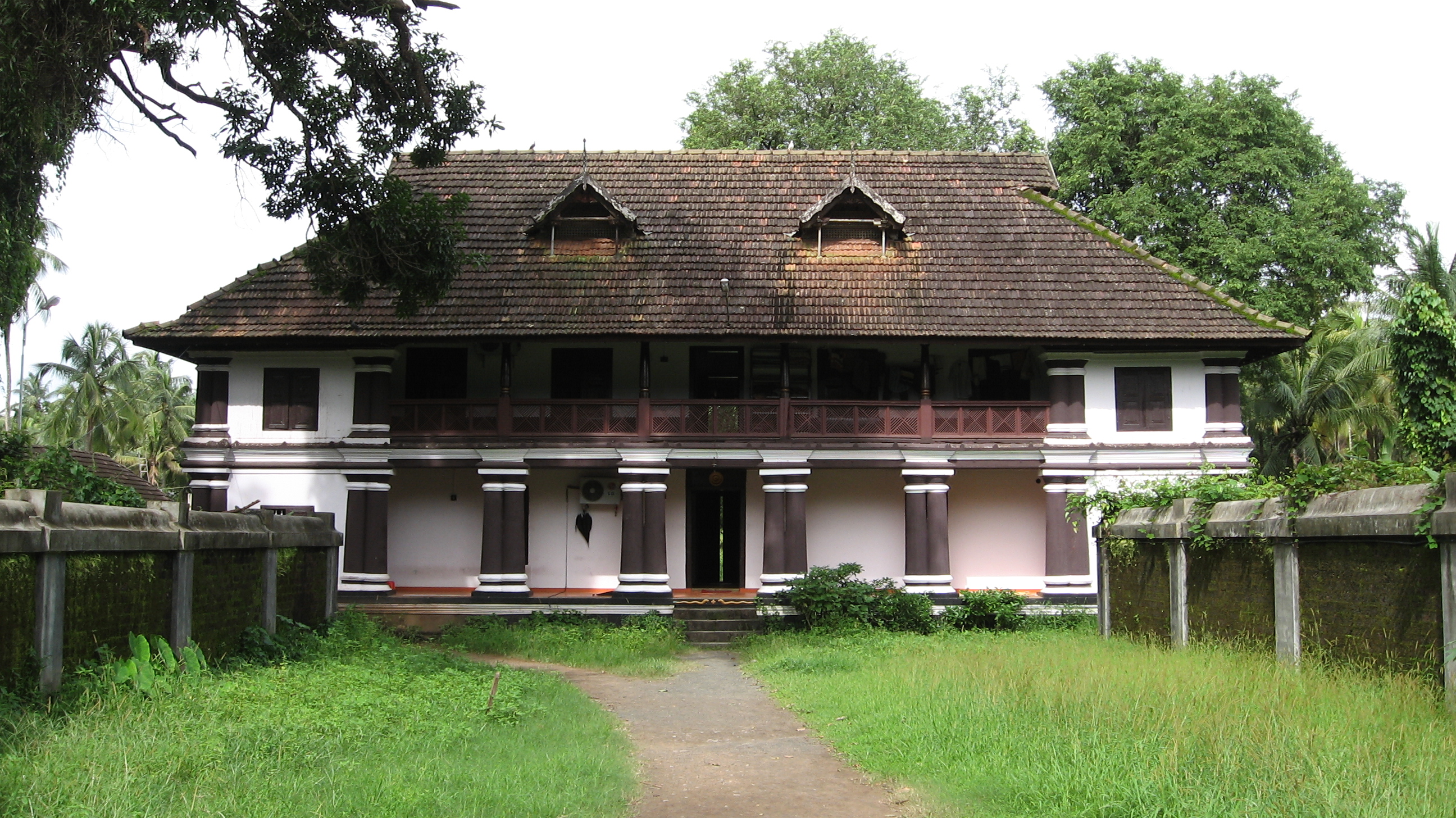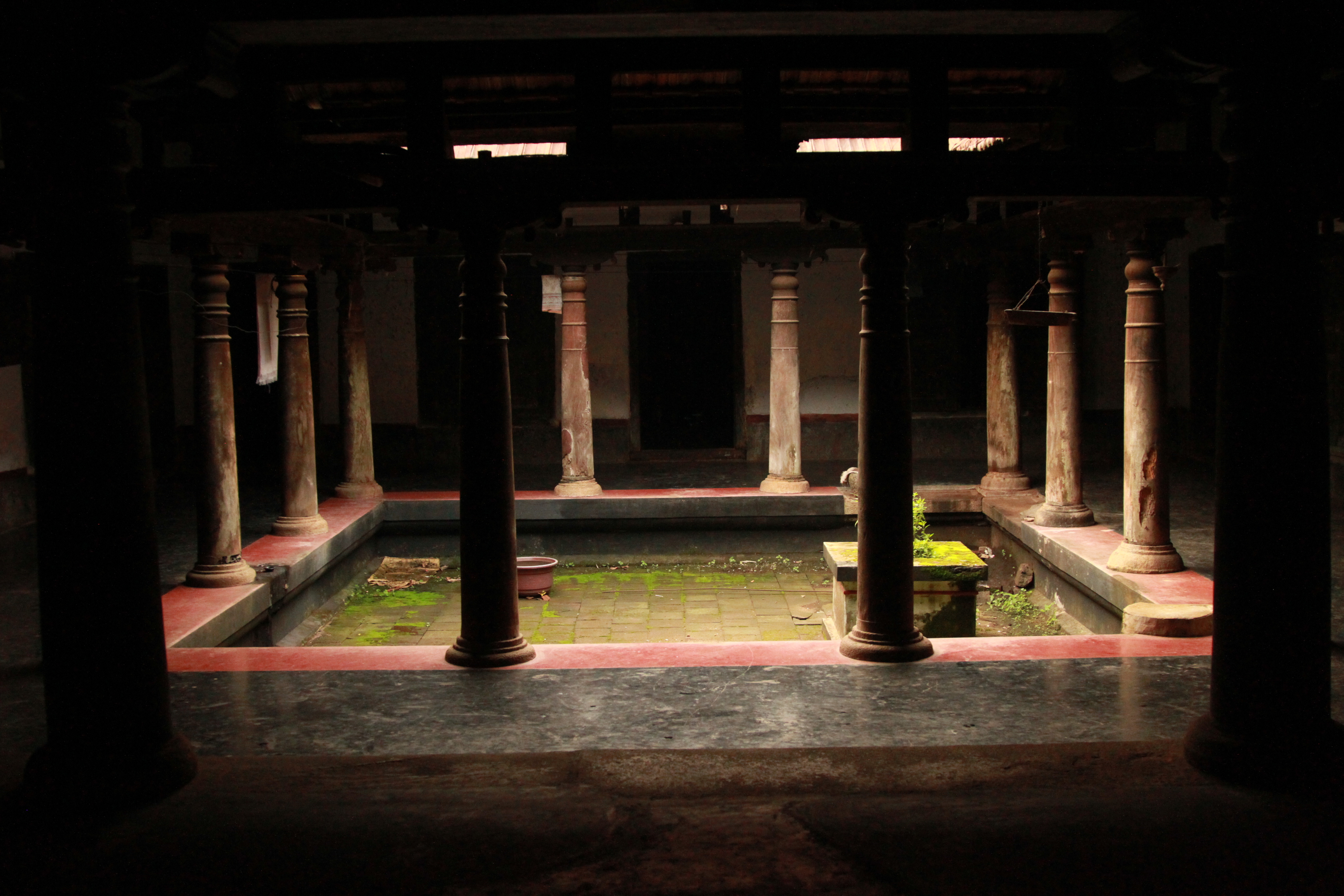Tharavad on:
[Wikipedia]
[Google]
[Amazon]

 Tharavad, also spelled as Tharavadu () (തറവാട്), is the
Tharavad, also spelled as Tharavadu () (തറവാട്), is the
 Inseparable from the traditional concept of a tharavad is, historically, Kerala's distinctive
Inseparable from the traditional concept of a tharavad is, historically, Kerala's distinctive 

 Tharavad, also spelled as Tharavadu () (തറവാട്), is the
Tharavad, also spelled as Tharavadu () (തറവാട്), is the Malayalam
Malayalam (; , ) is a Dravidian languages, Dravidian language spoken in the Indian state of Kerala and the union territories of Lakshadweep and Puducherry (union territory), Puducherry (Mahé district) by the Malayali people. It is one of ...
word for the ancestral home
An ancestral home is the place of origin of one's extended family, particularly the home owned and preserved by the same family for several generations. The term can refer to an individual house or estate, or to a broader geographic area such as a ...
of aristocratic Nair
The Nair (, ) also known as Nayar, are a group of Indian Hindu castes, described by anthropologist Kathleen Gough as "not a unitary group but a named category of castes". The Nair include several castes and many subdivisions, not all of whom hi ...
families in Kerala
Kerala ( , ) is a States and union territories of India, state on the Malabar Coast of India. It was formed on 1 November 1956, following the passage of the States Reorganisation Act, by combining Malayalam-speaking regions of the erstwhile ...
, which usually served as the common residence for the matrilineal
Matrilineality, at times called matriliny, is the tracing of kinship through the female line. It may also correlate with a social system in which people identify with their matriline, their mother's lineage, and which can involve the inheritan ...
joint family under the Marumakkathayam
Marumakkathayam was a system of matrilineal inheritance prevalent in regions of the Indian state of Kerala. It is similar to the Aliyasanthana system followed by the Bunt community in Karnataka.
The word "Marumakkathayam" originated from the ...
system practiced in the state. German linguist Hermann Gundert
Hermann Gundert (Stuttgart, 4 February 1814 – 25 April 1893) was a German missionary, scholar, and linguist, as well as the maternal grandfather of German novelist and Nobel laureate Hermann Hesse. Gundert is chiefly known for his contribu ...
, in his Malayalam—English dictionary published in 1872, defines a ''Tharavadu'' as, "An ancestral residence of land-owners and kings", and also as, "A house, chiefly of noblemen". It was classically the residence of Jenmi
Jenmi or Janmi (), plural Jenmimar, is the Malayalam term used to refer to the landed aristocracy of Kerala who traditionally held their lands as absolute and allodial owners, with such lands known as Jenmom or Janmam. They formed the landownin ...
mar, but contemporary usage of the word is now more generic to all social classes and religions in Kerala. By extension, the word refers not just to the family's house but also to the extended family that shares that house. Heads of tharavadus - usually the eldest living male - were known as ''Karnavars'', and junior members as ''Anandravans''.
Architecture
Nālukettu
Nālukettu is the traditional homestead of old Tharavadu where many generations of a Nair family lived. These types of buildings are typically found in the Indian state of Kerala. The traditional architecture is typically a rectangular struct ...
architectural tradition. A classic Nalukettu tharavad would be built with four halls, each with a defined purpose, and collectively enclosing a Nadumuttam, or open-air courtyard. Wealthier and more prominent tharavads would construct mansions with multiple such atria, such as the eight-halled Ettukettu, with two nadumuttams, or Pathinarukettu, sixteen-halled with four nadumuttams, and the preserve of royal families and tharavads of similar rank. Rarely, twelve-halled Pathrandukettu were constructed. with three courtyards, and there is a record of a 32-halled ''Muppathirandukettu'' being erected, although it was lost to a fire soon after construction.References
{{Culture of Kerala Kerala society Culture of Kerala Social history of Kerala